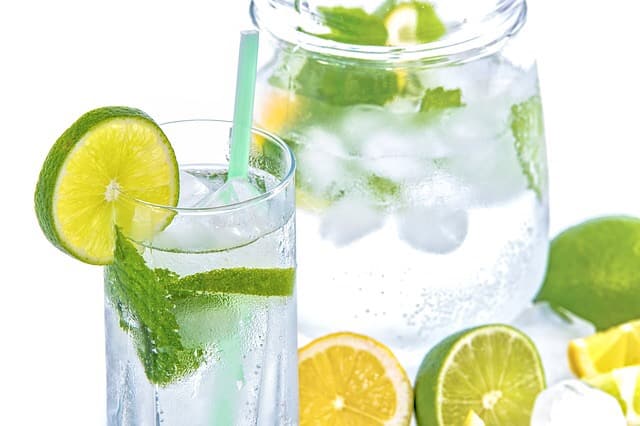For many Americans, the summer months bring picnics with the family, sitting at an outdoor concert, and lazy afternoons at the beach. As temperatures rise, summer activities can increase the risk for another season staple: dehydration. Dehydration can cause serious health concerns for anyone, but the elderly are at a particular risk.
Why Seniors Are at Risk
There are a few reasons why older adults are more susceptible to fluid and electrolyte imbalances. Older adults naturally have a lower volume of water in their bodies and are susceptible to dehydration more easily. Additionally, the sense of thirst diminishes with age. By the time someone actually feels thirsty, fluids could already be extremely low.
The ability to retain fluids can also be affected by certain medications and medical conditions. Individuals with dementia may forget to drink and eat, and in more advanced stages may have trouble swallowing. Lastly, seniors who have incontinence often limit or refuse fluids in order to avoid accidents.
Signs and Symptoms of Dehydration
Recognizing the signs and symptoms is important. Picking up on the signs that a senior needs to increase their fluid intake is vital. Thirst is not usually a helpful indicator, because a person who is thirsty may be dehydrated already. Signs to look for include dry mouth and tongue, less frequent urination, confusion, dizziness, and sleepiness or lethargy. Urine color is another indicator and should be light yellow or clear for someone who is properly hydrated.
If severe dehydration goes unchecked, it can cause other major health problems like blood clot complications, rapid but weak pulse, passing out, seizures due to electrolyte imbalance, and lower blood pressure. Being properly hydrated is also essential for certain medications to work. It is important to prevent dehydration because it’s a common cause of hospitalization in people over 65 and can even cause death.
Preventing Dehydration
Water needs vary from day to day and from person to person. Most adults need about 48-64 fluid ounces every day, but that amount increases with heat and humidity and can change based on various medications and health conditions.
If a senior is sweating or urinating more, then their fluid intake should be increased. If a loved one is suffering from an illness that causes fever, diarrhea or vomiting, carefully monitoring fluid intake is important. Becoming dehydrated in cold weather is also something to keep in mind.
Ways to Increase Fluid Intake
Water is the best option for hydration, but any fluid (except for alcohol) counts toward the daily requirement. If a senior refuses to drink plain water, there are plenty of alternatives available. Try using pre-flavored waters, serving a half water half juice mixture, or fruit-infused water.
Consider both savory and sweet options. Warm vegetable, beef or chicken broth can provide a source of electrolytes and fluids. For those with a sweet tooth, consider serving smoothies, milkshakes or popsicles.
How you serve beverages can have an effect on a loved one’s willingness and ability to drink them. Experimenting with different temperatures may make beverages more appetizing.
Keep in mind that beverages are not the only source of fluids. Raw vegetables and fruits can have a hydrating effect as well. Use the list below to add foods to your loved one’s diet that will help keep them hydrated.
Foods with High Water Content
Cucumber
Tomato
Watermelon
Bell pepper
Grapes
Cantaloupe
Orange
Blueberries
Apples
Try adding slices of tomato and a few leaves of lettuce to sandwiches and wraps or a cup of berries to a loved one’s yogurt, cereal or dessert. Incorporating these items on a daily basis can help your loved one prevent dehydration.
It is important to stay in communication with your loved one’s medical team and remember that managing some medical conditions, such as kidney or liver disease, may require intentional restrictions of fluid intake.

